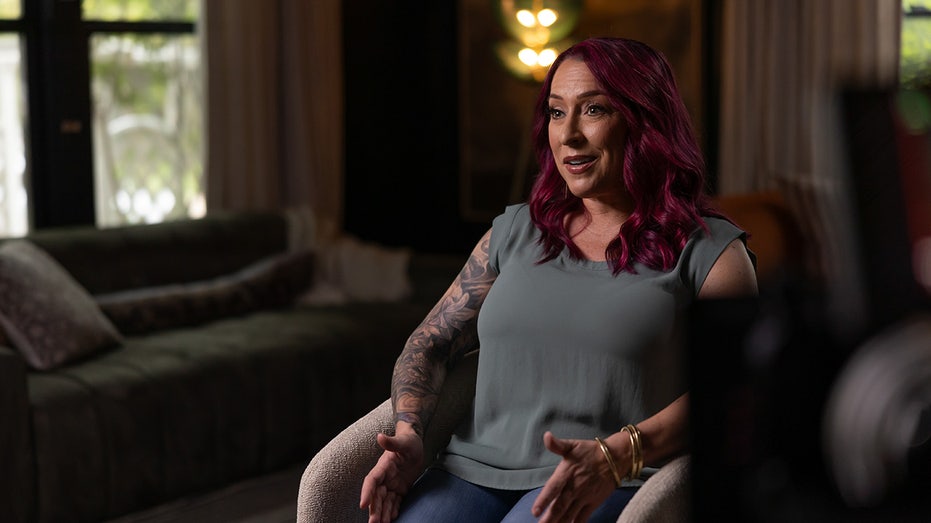Former Sex Trafficking Victim Pardoned by President Trump Unveils Hidden Secrets of Legal Brothel
Rebecca "Bekah" Charleston, once jailed for tax evasion and labeled a sex trafficking victim, was pardoned by the White House in 2020.

When Rebekah "Bekah" Charleston first set foot inside the Moonlite Bunny Ranch—a legal brothel situated in western Nevada—she was immediately struck by an unsettling atmosphere. "While the TV show ‘Cathouse’ might’ve made it look glamorous on the outside, when you actually drive out, it’s a double-wide trailer in the middle of nowhere. It’s a literal compound you’re entering into," Charleston recounted. The former sex trafficking victim described a reality far removed from television’s glossy depiction: residents were not allowed vehicles of their own, rarely left the premises, and slept in the very rooms where they worked day and night. "That’s not a job like any other," she emphasized.
Now living in North Texas, Charleston is sharing her experiences as part of "Secrets of the Bunny Ranch," a six-part docuseries exploring the rise and sensationalism of what was once called “America’s No. 1 sex destination.” The series delves into the life of Dennis Hof, the controversial owner who described himself as a pimp and passed away in 2018. Through interviews with ex-employees and previously unseen footage, the documentary aims to bring to light the hidden realities behind the brothel’s infamous reputation.
Charleston’s story is a stark reminder of the darker truths behind legalized prostitution. After running away from home at just 16, she was forced into prostitution by a manipulative boyfriend and soon fell into the hands of a trafficker. By her early twenties, she was sent to the Bunny Ranch as a form of punishment for drawing too much police attention in Las Vegas. “He made me go to the brothels,” she recalled, explaining that her trafficker demanded she keep her distance from Hof due to concerns over drugs, alcohol, and exploitative encounters.
Brothel workers, Charleston explained, were governed by strict rules laid out in “The Bunny Bible,” which dictated everything from client negotiations to health checks. “We would line up like cattle every Thursday to get a pap smear,” she shared. Monthly blood tests to check for HIV/AIDS were also mandatory. While television shows like HBO’s "Cathouse" portrayed sex work at the ranch as immensely lucrative, Charleston and other former workers described a different story. “The house takes 50% of your money off the top, no matter what," she said. Additional charges for room, board, food, and supplies chipped away at the remaining earnings, often leaving women in debt instead of profit.
For many, the environment was claustrophobic and dispiriting. According to Charleston, drug use among workers was common, and women spent days waiting for the bell to ring, uncertain who—or if—any customers would come through the door. “You wind up being indebted to the brothel,” she said. “You end up taking a call or ‘a date’ that you don’t even want to do. But you have to because now you’re in the red, and you have to pay your fees.”
Charleston was eventually withdrawn from the Bunny Ranch by her trafficker, who was dissatisfied with her earnings. Yet true liberation did not come immediately. In 2006, she was arrested for tax evasion—a charge she says she was manipulated into taking for her trafficker—and served 13 months in federal prison. Remarkably, she described her time behind bars as “a little bit of a vacation,” offering her respite from the constant physical and psychological demands of sex work. Her eventual pardon in 2020 brought some relief, aided by advocacy from law enforcement and survivors’ groups.
Determined to transform her life and help others, Charleston launched Bekah Speaks Out in 2013, providing training to law enforcement and community leaders on human trafficking. She has earned advanced degrees in criminal justice and criminology and advocates for legislative change, including the Trafficking Survivors Relief Act, which would allow victims to clear convictions linked to trafficking-related crimes. “If [the bill] were to go through, they would go back and redact the records, and it would be as if it never happened. That, to me, would be true justice," Charleston asserted.
Charleston hopes that by sharing her story, she can dispel persistent myths about legal prostitution and offer support to those still trapped within its cycle. "It makes me sad to know how many girls, many young women, were sucked in, thinking, ‘I’m going to live this glamorous lifestyle. ... You’re a prisoner stuck on the property, it’s not always going to be fun and you don’t really make that much money.’" Today, Charleston expresses gratitude for her new path and remains committed to advocacy, hoping her courage encourages other survivors to speak out and seek help.




